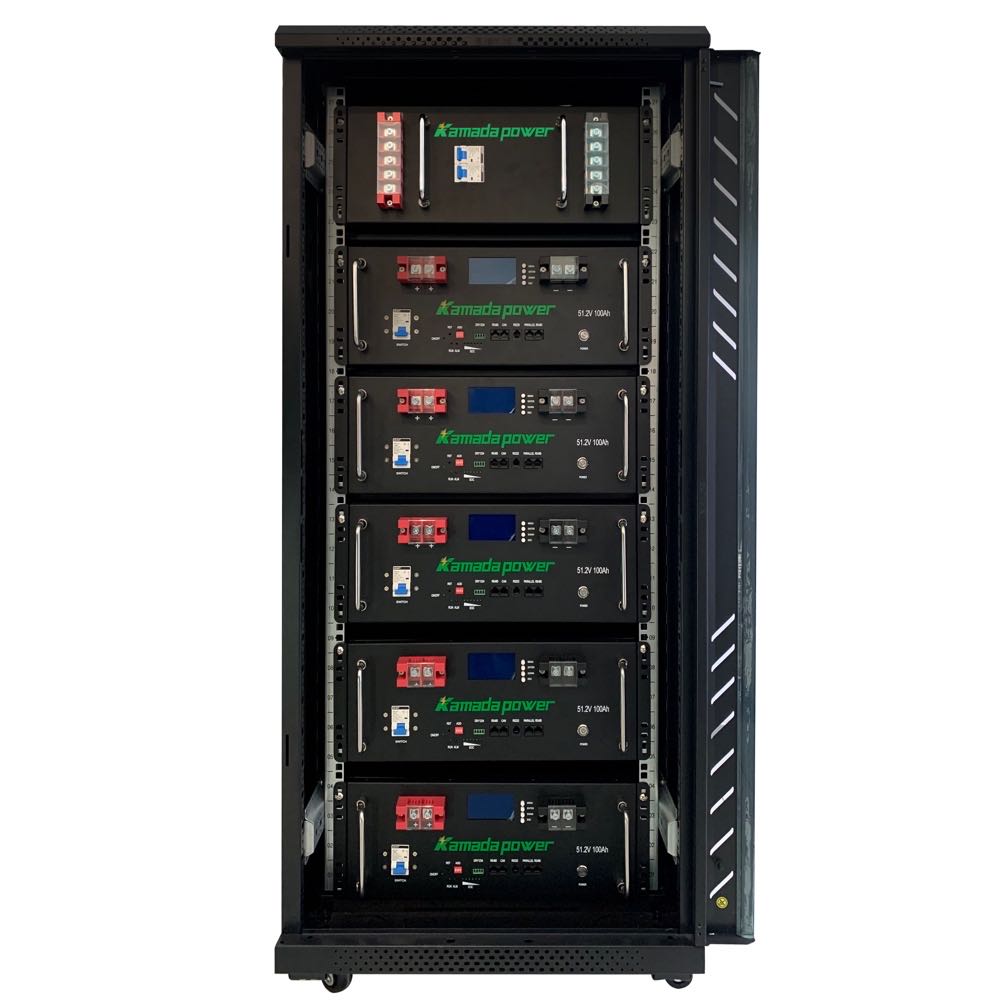トップ10 サーバーラックバッテリーメーカー.この常時接続の世界では、データセンターはあらゆるデジタルを推進するエンジンである。データセンターがダウンすれば、それは小さな問題ではなく、財布と企業の評判に大きな打撃を与える。いわば、明かりを灯し続けるということは、信頼できる電力を持つということです。無停電電源装置(UPS)とその重要なパートナーであるサーバーラックバッテリーは、そこで輝きを放ちます。電源がちらついたり、落ちたり、完全に切れたりしたときの最初の防衛手段です。UPSはバックアップ電源として即座に稼働し、重要なサーバー、ストレージ・システム、ネットワーク・ギアの稼働を維持します。
私たちは、標準的なサーバーラックにそのままスライドさせることができる、すっきりとした省スペースのラックマウントバッテリーセットアップへの大きな動きを見てきました。適切なメーカーを選ぶことは、単なる気軽な選択ではなく、信頼できる確かな性能と信頼性を得るための鍵となります。このリストでは、一流のグローバルメーカー10社にスポットライトを当てている。市場でよく知られていること、バッテリー技術でクールなことを行っていること、製品が実証済みであること、そしてどこでも顧客をサポートできることなどから選びました。これにより、世界中のデータセンターが強力なバックアップ・パワーを手にすることができます。
サーバーラックバッテリーメーカーの選び方
正しい選択 サーバーラックバッテリーサプライヤー は、単にスペック表を見るだけではありません。以下のような重要なことを考える必要がある:
信頼性とアップタイム
これは非常に重要だ。このブロックでは、堅実な設計を持ち、優れたバッテリーの健全性監視やユニットの自己テスト方法などを提供する、長年の実績を持つメーカーが必要です。他の顧客の声は?独立したテストはありますか?そういった情報は貴重です。
化学と安全性
- VRLA: これは古いもので、初期費用は安い。しかし、重く、長持ちしない。
- リチウムイオン(LFP、NMCなど): これらのバッテリーは、より少ないスペースで(つまり、より軽く、より小さく)、より長持ちし、より速く充電することができます。しかし、その分コストがかかり、安全性を保ち、正しく作動させるには優れたバッテリー管理システム(BMS)が必要です。特にリチウムイオンの場合は、メーカーがしっかりとした安全認証を取得していることと、冷却のためのスマートな設計をしていることを確認してください。
スケーラビリティとランタイム
必要な電力が増えるかもしれない。そこで、モジュラー設計を提供するメーカーを探しましょう。そうすれば、外付けバッテリーモジュール(EBM)を追加するだけで、UPS全体を交換することなく、より多くのランタイムを得ることができます。どのように組み合わされ、どの程度簡単に拡張できるかを再確認してください。
管理とモニタリング
常に監視できるバッテリーは信頼できるバッテリーです。セルレベルで何が起きているかを教えてくれ、充電(SoC)と健全性(SoH)を推定し、ネットワークカード(SNMPまたはウェブページを使用)を通してリモートでチェックでき、メインのUPSソフトウェアやデータセンター・インフラストラクチャ管理(DCIM)ツールとうまく連携できる、優れたBMSが必要です。
総所有コスト(TCO)
価格だけにとらわれてはいけません。バッテリーの寿命(リチウムイオンはVRLAより2~3倍長いことが多い)、交換頻度、使用電力(廃熱が少ないほど冷房代が安くなる)、必要なメンテナンス、寿命が尽きたときのことを考えよう。
サポートと保証
重要な機材に関しては、充実したサポートが必須だ。保証の詳細(保証期間、保証内容)、必要なときにテクニカルサポートが受けられるか(24時間365日体制か)、SLA(サービス・レベル・アグリーメント)はあるか、何か問題が起きたときに交換やサービスを受けるのは簡単か、などをチェックしよう。
サーバーラックバッテリーメーカー上位10社
バックアップ電源に適切なパートナーを得ることは大きな問題だ。以下はその10例である。 サーバーラックバッテリーメーカー この分野での品質と斬新なアイデアは一般に認められている:
1.深セン鎌田電子有限公司(鎌田パワー)
概要 鎌田パワーリチウム・バッテリー・システムの研究、開発、製造に力を入れている。彼らは、あらゆる種類のエネルギー貯蔵ニーズに対応するリン酸鉄リチウム(LFP)技術に力を入れている。
サーバーラックバッテリー カマダパワーが提供するのは、48VラックマウントLFPバッテリーモジュールです。50Ah、100Ah、200Ahのサイズをよく見かけるが、これは標準的なサーバーキャビネットにぴったり収まるように作られている。これらは、データセンター、通信スポット、その他信頼性の高いエネルギー貯蔵が必要な場所でのUPSバックアップを目的としています。通常、オンボード・バッテリー管理システム(BMS)、長いサイクル寿命、より多くのユニットを並列に追加して成長させる能力、他のシステムとの一般的な通信方法(RS485やCANなど)が期待できます。
市場でのポジションと強み: リチウム電池のスペシャリストであるカマダパワーの強みは、LFPへの強いこだわりから生まれることが多い。モジュール式でスケーラブルな設計を提供し、LFPは安全で長持ちすることで知られている。彼らは重要なバックアップ電源用の非常に特殊なバッテリーソリューションを提供しており、LFPの性能と、おそらく良い価格で作ることができるという理由で、しばしば人々に好まれている。

鎌田パワーサーバーラックバッテリー
2.シュナイダーエレクトリック(APC)
概要 フランスのシュナイダーエレクトリック社は、エネルギー管理とオートメーションの世界的大企業である。APCブランドは?UPSや電源保護で知らない人はいない。
サーバーラックバッテリー APCのラックマウント型UPSシステムには、拡張可能な外付けバッテリー・モジュール(Smart-UPSやSymmetraラインなど)を搭載したものが数多くある。昔ながらのVRLA(弁式安定化鉛酸)タイプもあれば、リチウムイオンタイプもある。ホットスワップ可能なバッテリーと、PowerChuteソフトウェアによる優れた管理機能は共通の特徴だ。
市場でのポジションと強み: この池では大きな魚で、信頼できることで知られている。あらゆる種類の電力ニーズに対応する膨大な製品ライン、優れたグローバル・サービス・チーム、そしてEcoStruxure ITプラットフォームと連動した管理ツールを持っている。
3.イートン
概要 イートンはアイルランドと米国に主要拠点を持つ世界的な電力管理企業であり、電気、油圧、機械電力に関わる多くの事業を展開している。
サーバーラックバッテリー イートンは拡張バッテリモジュール(EBMs)でラックマウントUPSシステム(5Pと9PXシリーズのような)の幅広い選択を提供します。VRLAとリチウムイオンの両方があります。高効率を追求し、バッテリーを長持ちさせるアドバンスド・バッテリー・マネージメント(ABM)技術を持ち、ホットスワップが可能です。
市場でのポジションと強み: シュナイダーエレクトリックの強力なライバルだ。シュナイダーエレクトリックは、エネルギー効率の高さ、バッテリーの賢いABM技術、仮想化ソフトウェアとの優れた連携、そして幅広い電源ソリューションで知られている。
4.バーティブ
概要 オハイオ州コロンバスに本拠を置くバーティブは、重要なデジタル・インフラストラクチャーと物事の実行を維持することに全力を注いでいる。以前はエマソン・ネットワーク・パワー社だった。
サーバーラックバッテリー VertivのLiebertシリーズのラックマウントUPSシステム(GXTシリーズやPSIシリーズなど)には、適合するバッテリーキャビネットが付属している。彼らはVRLAとリチウムイオンの両方を提供し、小さなスペースで多くの電力を供給し、本当に重要なもののための信頼性と、監視装置とのスムーズな接続を目指している。
市場でのポジションと強み: 同社はデータセンターとクリティカルなシステムに重点を置いており、超高信頼性のギアで知られている。また、世界中にサービスチームを持ち、電力だけでなく冷却についても熟知している。
5.サイバーパワーシステム
概要 台湾のサイバーパワー社は、世界中で電源保護と管理ギアを販売している。同社は、多くの機能を低価格で提供することで知られている。
サーバーラックバッテリー サイバーパワー社には、ラックマウント型UPSのラインアップ(Smart App Sinewave、OLシリーズ)と、それに付随する外部バッテリーモジュール(EBM)があります。VRLAとリチウムイオンの両方が手に入る。また、カラーLCDスクリーン、省エネ技術(GreenPower UPS)、ネットワーク管理ツールなども提供しています。
市場でのポジションと強み: 中小企業だけでなく、大企業との取引も多い。お値打ちな価格、豊富な商品とサイズ、使いやすい機能などが好まれている。
6.イートンのTripp Lite
概要 現在はイートン傘下となったトリップライトは、古くから存在する(もともとはシカゴ発祥)。同社は、電力保護と接続方法に関して長い実績がある。
サーバーラックバッテリー Tripp LiteのSmartProとSmartOnlineラックマウントUPSシステムには、追加できるバッテリーパックがある。主にVRLAを提供しているが、リチウムイオンもある。タフな設計で知られ、IT、産業、ヘルスケアなど様々な用途に対応しています。
市場でのポジションと強み: 今ではイートンの規模を後ろ盾にしているが、それでも信頼できるという点では定評がある。彼らのカタログは、電力、接続、その他のインフラビットをカバーする、かなり多様である。
7.ルグラン(ラリタン&サーバーテクノロジーブランドを含む)
概要 ルグランはフランスの会社で、世界中のビルの電気やデジタル関連で大きな役割を果たしている。ラリタンやサーバー・テクノロジーといったブランドを所有しており、データセンターでよく見かける。
サーバーラックバッテリー ルグランといえばPDU(配電盤)のイメージが強いかもしれないが、ラックマウント型のUPSシステムも展開しており、大規模なデータセンターのセットアップにも対応している。ルグランは通常、UPSのラインアップとバッテリーの選択肢を合わせ、ラック内ですべてがスムーズに連動するよう注力している。
市場でのポジションと強み: 彼らはデータセンター全体のソリューション(電源、冷却、監視)をまとめることに強い。ラリタンのような有名ブランドを使って高度な制御を行い、スマートなラックギアに焦点を当てている。
8.ファーウェイ
概要 ファーウェイは中国の巨大ハイテク企業で、通信機器で有名だが、データセンター・インフラや電力分野にも進出している。
サーバーラックバッテリー ファーウェイは、データセンター向けのモジュール式UPSシステム(UPS5000シリーズなど)を製造しており、ラックマウント型のリチウムイオンバッテリーを使用することが多い。ファーウェイは、高効率、モジュールによる容易な拡張性、スマートなバッテリー管理を非常に重視している。
市場でのポジションと強み: 同社は通信業界の巨人であり、企業ITの分野でも成長を続けている。研究開発に多くの費用を費やし、効率的でモジュール化された "インテリジェント "なパワー・ソリューションに注力している。
9.リタール
概要 ドイツのリタールは、産業用筐体、配電、空調制御、ITインフラストラクチャのトップ企業である。
サーバーラックバッテリー リタールは、ITインフラ全体のパッケージの一部として、ラックマウントUPSシステムとそのためのバッテリーモジュールを提供している(同社のRiMatrixシステムのように)。彼らは通常、VRLAとリチウムイオンのオプションは、そのエンクロージャ用に設計され、すべてがリタールラックシステムに完全にフィットするようにすることに重点を置いています。
市場でのポジションと強み: ITラックとエンクロージャをリードする。電源、冷却、モニタリングのすべてがラック内で連動するソリューションを提供している。ドイツのエンジニアリング品質と、システムの適合性の高さで知られる。
10.AEGパワーソリューションズ
概要 ドイツをルーツとするAEGパワー・ソリューションズは、世界中の重要なセットアップ用の産業用UPSシステムとパワーエレクトロニクスを製造している。
サーバーラックバッテリー AEGのラックマウント型UPSシステム(Protectシリーズのような)は、厳しい産業やITの現場でよく見かける。これらのUPSには、それに対応するバッテリーパック(VRLAとLi-ion)が付属している。AEGのUPSは、タフで信頼性が高く、特定の作業に合わせて微調整が可能です。
市場でのポジションと強み: 同社は産業用電源保護で確固たる名声を得ており、過酷な環境向けの作り方を熟知している。標準的なものだけでなく、カスタムソリューションにも対応している。
(ご注意ください:サーバーラックバッテリーの世界は変化が激しい。製品ラインや各社が注力する分野は移り変わります。メーカーからの最新情報をチェックするのが賢明だ)
サーバーラックバッテリーの用途
では、これらはどこにあるのか? サーバーラックバッテリー 仕事ですか?コンピューターやギアを稼動させ続けることは、本当に重要なことなのだ:
- データセンター ここがメインスポットだ!巨大なクラウドデータセンターから小規模な企業のサーバールームまで、これらのバッテリーは大量のサーバー、ストレージ、ネットワーク機器をバックアップしている。
- テレコム・サイト セルタワーやネットワークハブを思い浮かべてほしい。主電源に不具合があっても、バッテリーは通話やインターネットデータの流れを維持する。
- エッジコンピューティング: 店舗や工場、5Gタワーの近くなど、小規模でローカルな「ミニ・データセンター」がますます増えている。ラック・バッテリーは、人々が使用する場所に近いこのようなスポットで機器に電力を供給する。
- ビジネスとオフィス 多くの企業では、社内ネットワーク、ウェブサイト、重要なビジネス・システム用に独自のサーバー・ラックを設置しています。バッテリーは、これらのサーバーを確実に稼働させます。
- 産業用制御機器: 工場では、機械やプロセスを稼働させるために、ラックに入ったコンピューターを使用している。バッテリーは、電源が落ちたときに高価なシャットダウンを防ぐ。
- 医療施設: 病院や研究所では、重要な機器やITシステムがラックに収められており、患者の治療や研究のために常に電力を必要としています。
- 緊急サービス 911コールセンターのような場所では、通信システムがラック・バッテリーに依存している。 決して 暗くなる。
サーバーラックに重要な電子機器があり、絶対に、絶対に電源が切れてはならない場合、サーバーラックのバッテリーが役に立つ。
サーバーラックバッテリー技術の将来動向
サーバーラックバッテリーの世界は変化し続けている:
- リチウムイオンが支配する リチウムイオンバッテリー(特にLFP)へのシフトはさらに進むだろう。コストが下がり、より少ないスペースに多くのパワーを詰め込むことができ、長持ちする。
- よりスマートなBMS: バッテリー・マネジメント・システムは、より頭脳的になっている。バッテリーの健康状態や寿命の予測を、以前よりも正確に行うようになるだろう。
- より良い効率と冷却: 特に、より多くの電力をより小さなスペースに安全に詰め込もうとする中で、エネルギーの無駄遣いを減らし、バッテリーを冷却するためのより良い方法を見つけることに、誰もがまだ取り組んでいる。
- シンク・グリーン: 材料がどこから来ているのか、バッテリーを長持ちさせること、そしてバッテリーを使い終わった後のリサイクルプログラムについて、より多くのことが語られるようになった。
- 他のシステムとの連携: グリッド・サービス、DCIMソフトウェア、さらにはビル全体のエネルギー・システムといったものとバッテリーがもっと結びつくことを期待したい。
結論
めまぐるしく変化するデジタルの世界では、停電は許されません。サーバーラックバッテリーは、送電網が停止してもビジネスを継続させる静かなヒーローです。今回ご紹介したメーカーは、あらゆるデータセンターのニーズに対応するさまざまなソリューションを提供する、最も信頼性の高いメーカーです。信頼性、バッテリーの種類、増設可能かどうか、管理方法、トータルコスト、サポート体制などを考慮すれば、大切なIT機器を守る適切なパートナーを選ぶことができます。よく管理された優れたバッテリー・バックアップに資金を投入することは、単にやらなければならないことではなく、最近のデータで動いているあらゆる企業にとって賢明な行動なのです。
よくあるご質問
サーバーラックのバッテリーの寿命は?
場合によるね!古い鉛電池は3-5年使えるかもしれない。新しいリチウムイオンタイプは?8~15年ともっと長く使えることが多いけど、結局は使い方とコンディション次第だね。
どっちがいい?リチウムイオンか鉛蓄電池か?
通常、リチウムイオン(特にLFPタイプ)は軽く、長持ちし、充電が早く、場所を取らない。リチウムイオンは最初に買うときは高くつくが、長い目で見れば節約になる。鉛蓄電池は使い始めは安いが、重く、注意が必要で、長持ちしない。
異なるブランドのバッテリーをUPSに使用できますか?
ほとんどの場合、それは大きなことだ。 いいえ.バッテリーパックは、通常、特定のUPSモデルのためだけに作られています。 同じ 会社です。ブランドを混ぜようとすると危険ですし、おそらくうまくいかないでしょう。UPSメーカーが使用するように言っているバッテリーパックにこだわってください。
必要なバッテリー駆動時間を知るには?
使用する機材がどれだけの電力を使用するのか(通常はワット単位の「負荷」)を把握し、停電時にどれだけの時間電源を入れておく必要があるのかを決める必要がある。ほとんどのメーカーのウェブサイトには、適切なバッテリーサイズを算出するためのツールや計算機が用意されている。
サーバーラックのバッテリーは安全ですか?
優良メーカーは厳格な安全規則(UL規格の取得など)に従っています。リチウムイオンバッテリーには安全機能が組み込まれており、BMS(バッテリー管理システム)によって管理されています。バッテリーの入れ方や取り扱いについては、必ずメーカーの指示に従ってください。